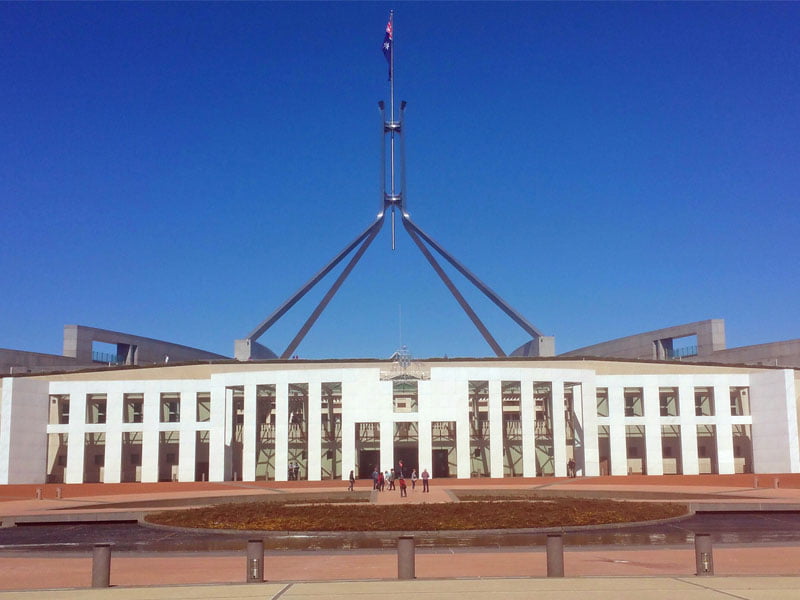The New South Wales Government is in serious talks with the Commonwealth to have its MyServiceNSW identity management infrastructure co-opted by the Australian Government.
The move would allow ServiceNSW’s online customers to directly access federal government services.
New South Wales has made good progress in bedding down its MyServiceNSW identity framework, attracting more than 900,000 registered users since its minimalist opt-in system was officially launched in February.

The state is a clear leader in this area among it government peers, and the Commonwealth would greatly accelerate its own identity management implementation plans through a collaboration with NSW.
Details are hard to come by. Identity has been an unnecessarily fraught political issue throughout 2016 in relation to online service delivery.
But it is understood the discussions between the governments have focused on the adoption of NSW’s identity management for citizen services, while the Commonwealth’s significant work on business identity would be used to enable more efficient business transactions involving both State and Federal jurisdictions.
The Australian Taxation Office and the Department of Industry have done significant work on its identity management platform for businesses.
The evolution of Commonwealth’s thinking on the way it manages identity seems to be nearing a conclusion. Assistant Minister for Digital Transformation and Cities Angus Taylor is expected to announce at least some details of the new framework by the end of the year.
The federated model for identity that is understood to be under consideration seems minimalist, along the lines of a MyServiceNSW account. The platform will be an opt-in service, with the aim to attract citizens by delivering more convenient services rather than mandating registration in order to access those services.
Any talk of the system being anchored with a biometric has ceased, after an executive at the former Digital Transformation Office caused furore earlier this year with talk of plans for an identifier. The language now is of a simple online verification system.
And the language is important, obviously. There is a huge difference between a system that manages ‘digital identity’ and a system creates a ‘digital identifier’. The word identifier alone is enough to make some people’s hair catch fire.
The way the identity project gets discussed externally has changed dramatically. The Digital Transformation Agency is looking into simplifying the steps of proving who you are when you go online to use Government services.
It’s about reducing the number of usernames and passwords you need for different Government websites. It would be an opt–in system.
New South Wales has openly sought a greater degree of collaboration with the Commonwealth on identity since before the original Digital Transformation Office was officially launch in July last year.
It had become more vocal since the launch of MyServiceNSW, and has been emboldened by the success of its online licence and registration systems earlier this year.
Both governments see the huge economic benefits that can be derived by managing inter-agency and inter-government transactions more efficiently through the smarter management of identity.
The straight-forward improvements to the clunky federal MyGov service (where the difficult to remember Customer Access Number was simply changed to a users email address) is said to have saved the Commonwealth tens of millions of dollars in the recent tax season alone.
It does make you wonder why MyGov was not an earlier target for low-hanging fruit improvement.
There are a bunch of questions that go to the heart of federalism that a tight collaboration between the NSW and Australian Governments on identity raise. But these are very explainable, if government ever starts a public discussion.
The three-tiered governing model in Australia – and the reluctance to centralise power – is a good reason that the Commonwealth has stepped away from following the UK model on identity.
The next issue worth raising in any collaboration on identity between NSW and the Commonwealth is the underpinnings of MyServiceNSW resting on portal infrastructure provided by US multinational software-as-a-service provider Salesforce.
Identity data from MyServiceNSW account is stored locally in the NSW Government’s private data centre, GovDC.
While certain transaction information is handled through Salesforce, digital identity isn’t held as a Salesforce Account. This is something that might need better public understanding in any discussion between NSW and the Commonwealth on identity.
Regardless, these discussions are ongoing, with ServiceNSW, the new DTA, the Tax Office and the Department of Industry all understood to have a seat at the table.
If an announcement on the future of identity management at the Commonwealth level could be made by the end of the year, work could begin in earnest on a collaboration early in the New Year.
This should be non-controversial. The gains are potentially spectacular. But it is going to require a better communications plan from Commonwealth digital strategists than has been on offer through 2016.
Do you know more? Contact James Riley via Email.

